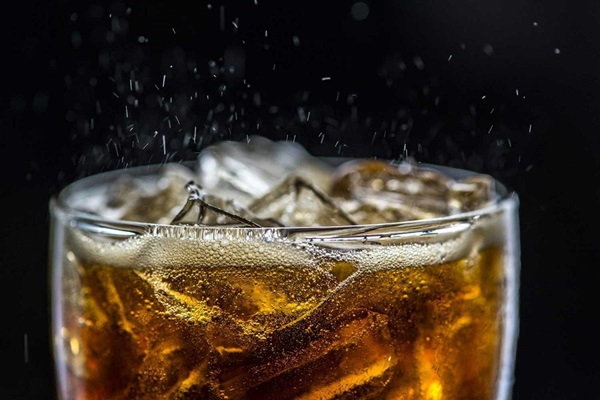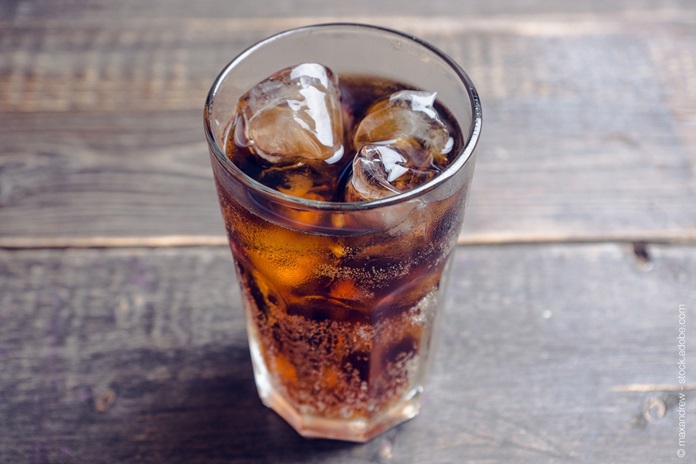National Carbonated Beverage With Caffeine Day is celebrated on November 19 each year, and we are excited to join in the festivities. Did you know that caffeine was added to fizzy drinks to attract more people? Caffeine plays a big role in our daily lives, especially through popular drinks like coffee and tea. These beverages are so well-loved globally that even the IELTS exam includes questions about them in its speaking test.
History of National Carbonated Beverage With Caffeine Day
National Carbonated Beverage With Caffeine Day is a unique holiday celebrated annually on November 19. It’s a day dedicated to enjoying a variety of fizzy drinks that contain caffeine.
The origins of National Carbonated Beverage With Caffeine Day are unclear, and the founder remains unknown. However, the history of carbonated beverages and caffeine is fascinating. The earliest carbonated drinks were alcoholic and became fizzy through a process known as fermentation.
Chemists experimented with different methods to add bubbles to water, using a ventilating device, which led to English chemist Joseph Preistley’s discovery of carbonated water.
In 1767, while working at a local brewery in Leeds, England, Priestley conducted an experiment by suspending a bowl of distilled water above a beer vat.
His accidental but successful creation of carbonated water was a key moment in developing an essential ingredient for soft drinks. Priestley’s invention played a significant role in the success of the soft drink industry.
Bottled carbonated water soon became widely available, and about fifty years later, caffeinated carbonated drinks gained popularity in the mainstream beverage industry.
As trade expanded, the invention of resealable bottles helped maintain steady production and ensured that these drinks remained a strong presence in the market to this day.

Caffeinated beverages have become a significant part of human history. Some people enjoy carbonated drinks, others prefer caffeine, and many love both.
Whether due to health, medical reasons, or personal taste, the irresistible appeal of the enhanced flavor in these drinks has captivated millions. This popularity eventually led to the creation of an annual event celebrating the combination of these two components.
| 1600 (The First Known Alcoholic Beverages) | Beer, wine, and champagne are carbonated using fermentation. |
| 1767 (Joseph Priestly Discovers Carbonated Water) | This Englishman’s experiment of infusing carbon dioxide into water leads to the accidental discovery of carbonated water. |
| 1819 (Discovery of Caffeine) | The chemical caffeine is discovered by a young physician named Friedlieb Ferdinand Runge. |
| 1905 (Carbonated Drinks With Caffeine) | Coca-Cola in Missouri starts to manufacture soda with caffeine by using tea leaves to extract caffeine. |
5 Facts About Carbonated Beverage
Origin of Carbonation: The process of carbonating water was first discovered by Joseph Priestley in 1767. He infused water with carbon dioxide gas, creating what we now know as soda water. This discovery paved the way for the development of modern carbonated beverages.
Fizz and Taste: The fizzy sensation you feel when drinking a carbonated beverage is due to carbon dioxide gas being dissolved under pressure in the liquid. When you open the bottle or can, the pressure is released, allowing the gas to escape and create bubbles. Interestingly, the slight acidity from carbon dioxide also enhances the drink’s flavor.
Sugar Content: Many carbonated beverages, especially sodas, are known for their high sugar content. A typical can of soda contains about 10 teaspoons of sugar, which is more than the recommended daily intake for an adult. This high sugar content has raised concerns about the role of carbonated beverages in contributing to obesity and other health issues.
Health Impacts: While occasional consumption of carbonated beverages is generally harmless, regular intake can have negative health effects. Besides contributing to obesity, these drinks can cause tooth decay due to their high acidity and sugar content. The acidity can erode tooth enamel over time, leading to cavities.
Popularity: Carbonated beverages are one of the most popular drinks worldwide. Coca-Cola, one of the leading brands, is sold in over 200 countries, and more than 1.9 billion servings of Coca-Cola products are consumed daily. Despite growing health concerns, the global carbonated beverage market continues to thrive, with new flavors and varieties constantly being introduced.
Conclusion
National Carbonated Beverage With Caffeine Day celebrates the unique combination of fizzy drinks and caffeine that has captivated people worldwide. From Joseph Priestley’s accidental discovery of carbonated water in 1767 to the widespread popularity of caffeinated sodas, these beverages have become a staple in our daily lives.
While their consumption offers enjoyable moments of refreshment, it’s essential to be mindful of their health impacts. This annual observance not only highlights the historical significance of these drinks but also reminds us to appreciate them in moderation. Whether you’re a fan of the fizz, the caffeine, or both, November 19 is a day to enjoy these bubbly delights responsibly.
Frequently Ask Question
1. What is National Carbonated Beverage With Caffeine Day?
National Carbonated Beverage With Caffeine Day is celebrated annually on November 19. It’s a day dedicated to enjoying a variety of fizzy drinks that contain caffeine, recognizing their historical significance and popularity.
2. Why was caffeine added to carbonated beverages?
Caffeine was added to fizzy drinks to attract more people by enhancing flavor and providing a stimulating effect, making these beverages even more appealing.
3. Who founded National Carbonated Beverage With Caffeine Day?
The origins of National Carbonated Beverage With Caffeine Day are unclear, and the founder remains unknown. However, the holiday celebrates the combination of carbonation and caffeine, both of which have rich histories.
4. How was carbonated water discovered?
Carbonated water was accidentally discovered by English chemist Joseph Priestley in 1767. While working at a brewery in Leeds, he infused water with carbon dioxide gas, leading to the creation of carbonated water, an essential ingredient in soft drinks.
You may also like to read, National Baklava Day – November 17, 2024
